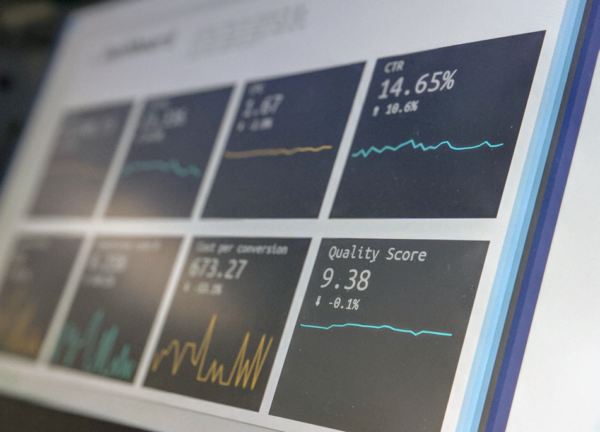Small and medium-sized enterprises (SMEs) comprise more than 99% of businesses in the U.S., based on reports issued by the Small Business Administration (SBA).
More than any other period in recent memory, business access to a plethora of data and business analytics (BA) tools has created massive organizational change in this sector. It deserves unpacking.
From Spreadsheets to AI
Business analytics tools range from spreadsheets to advanced interactive dashboards to Artificial Intelligence (AI). These tools can improve the performance of businesses to meet their customers’ wants and needs. Some examples of such tools are interactive dashboards developed by Power BI (business intelligence) and Tableau to more advanced ones such as IBM Watson intelligent systems.
However, both large and small businesses are not taking advantage of these tools equally.
Large manufacturing and service firms with abundant resources utilize technology to offer smarter and more customized products and services to customers. Through extensive research and development investments, they can identify BA tools and market trends to adopt the best solutions to increase value. For instance, streaming services such as Netflix deploy artificial intelligence tools to analyze the massive data they collect by tracking viewer patterns to increase the success of future products and services.
On the other hand, small and medium-sized enterprises (SMEs) compete with less resources than larger firms. This sector contains essential employers of the U.S. workforce. They form the backbone of the economy.
Jobs and Operational Efficiencies
BA reported small businesses generated about 59 million jobs or about 47% of the U.S. total in 2020. Business analytics hold potential to revitalize SMEs to perform better locally and globally. However, limited resources such as time, financial resources, and human resources constrain SME technology solution adoption.
Information technology (IT) can help small firms to achieve operational efficiencies.
These technologies can help SMEs to better customize products and services to meet customers’ expectations and gain competitive advantage in their business both locally and globally. Business analytics can help a local restaurant to analyze the ordering behaviors of customers to revise their menu with desirable ingredients or it can allow a local retail store to compete with online stores in offering competitive services. Yet research studies show U.S. SMEs adopt IT tools at a low rate.

Photo by Louis Hansel on Unsplash
Low-Cost Social Media
Research studies show SMEs deploy Excel and social media tools such as Instagram and Facebook more than other IT tools, perhaps due to their lower cost and lower skill levels required. Social media applications are popular and easily accessible to consumers through computers and smart phones.
Those affordances allow SMEs to reach their customers and communicate with them through sharing photos, feedback, interests, and more. These interactions lead to building trust between businesses and customers and strengthening relationships and at the same time expanding network of customers. Social media also provides free or small-fee analytical tools for SMEs that generate statistics by tracking customers at an aggregate level.
Data and Analytics
Yet it is important to note that SME engagement with advanced information technology tools with machine learning and other AI capabilities is very limited.
Advanced BA tools facilitate analysis of big data, which not only more accurately predicts consumer behavior but also can customize services and product.
A local farmer, for example, does not have to follow their family traditions and can use data and AI to make smart decisions. AI system recommendations can aid farmers with making better decisions about treating their soil or improving selection of seeds, nitrogen rate, and more to have a more productive operation. Advanced analytics tools allow managers to make more strategic decisions and develop innovative solutions that can significantly improve their competitive advantage.

Photo by Gozha Net on Unsplash
Constraints to Overcome
Limited time, financial resources, and expertise constrain SMEs’ adoption of information technology.
Time is a scarce resource.
Businesses in this sector focus more on short-term goals and day-to-day operations with limited staff. Many local diners, for example, usually have loyal customers from the small communities they serve and rely on word-of-mouth recommendations of their services without many plans to expand their business beyond their comfort zone.
SMEs typically focus less on strategic long-time goals compared to larger firms.
They do not invest as much in research and development to deepen understanding of existing and future trends. They often do not perceive the value of business analytics. To realize the benefits of business analytics, SMEs need to become more aware of developing trends.
Limited financial resources create another obstacle.
Investment in IT tools entails upfront costs beyond the budgets of SMEs, inhibiting technology implementation. SMEs’ limited knowledge and expertise in IT solutions constrain adoption as well. IT experts are needed to plan, design, and implement these solutions.
In the U.S., IT training and education occurs mostly in post-diploma studies in science and engineering programs in colleges and universities. Most SMEs’ managers and owners do not have college degrees and lack required IT skills. With the explosion of new IT tools and applications, both large and small firms cannot often hire enough skilled IT workers.
Some Solutions
The high cost of IT knowledge workers constitutes a barrier to entry for SME hiring. The average number of computer science degree graduates in the U.S. is about 65,000, with about double as many job opportunities available. Elimination of these obstacles will accelerate SME technology adoption.
There are many ways to help SMEs overcome these constraints to adopt business analytics.

Photo by Stephen Dawson on Unsplash
Local municipalities, Chambers of Commerce, and state and Federal aid can provide assistance. Tax incentives and low interest rate loans can support IT investments. Chambers of Commerce could function as centers to share ideas and successful experiences of local business IT tool utilization. Federal and states technology apprenticeship programs can help to train and develop IT skills to widen the pool of trained workers for SMEs with time and financial constraints.
Switzerland and Germany have implemented successful systematic models of tech apprenticeship programs that train workers in a shorter time span at a lower cost than a college degree. The U.S. Department of Labor has promoted and supported some registered tech apprenticeship programs to create pathways for high school and community college students to become IT generalists or software developers within months and at a low cost. These programs must be expanded and available to everyone nationwide.
Economic Empowerment
Information technology and business analytics economically empower SMEs who need to compete with large corporations locally and globally.
The business world is moving toward increased digitalization and a more access to data and advanced analysis tools. The adoption of these technologies by SMEs seems inevitable.
Narges Kasiri is Associate Professor of Business Analytics and Operations Management in the School of Business at Ithaca College. She teaches and conducts research in the areas of Information Technology and Business Analytics in small and large corporations. In 2017, she received a Fulbright grant to conduct a comparative study on the adoption of technology in the U.S. and Europe. Her current research focuses on the adoption of Business Analytics by small and medium-sized enterprises (SMEs) in the U.S.. She has published her work in numerous national and international venues.
Ithaca College undergraduates John Bailey, Cara Cirino, and Cameron Narimanian collaborated on her recent scholarly research project on the adoption of Business Analytics by SMEs from which this piece has been adapted.
Header photo by ThisisEngineering RAEng on Unsplash.

